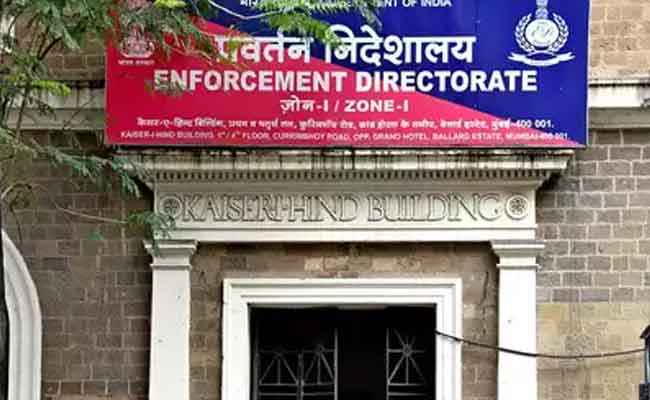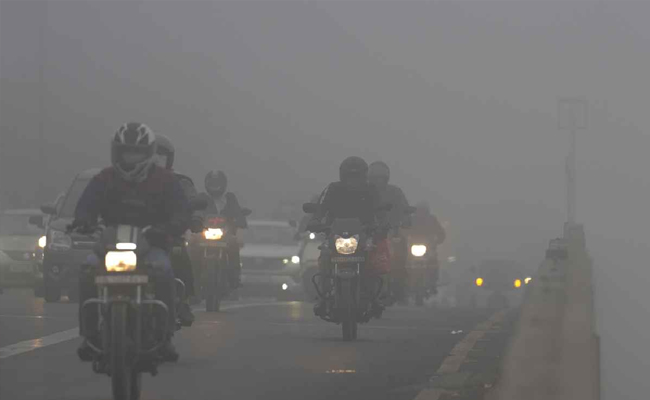Bengaluru (PTI): The Enforcement Directorate undertook fresh searches on Monday in connection with the money laundering case involving the Mysuru Urban Development Authority in which it has booked Karnataka Chief Minister Siddaramaiah, his family and others, official sources said.
About seven to eight premises in Bengaluru and Mysuru are being covered in the search, the sources said. This includes the premises of a builder in Bengaluru and some linked persons.
The federal agency conducted the first round of raids in this case on October 18 when it searched the Mysuru Urban Development Authority (MUDA) office in Mysuru and some other locations.
It also questioned some lower-rank officials of the MUDA at its Bengaluru zonal office last week.
Taking cognisance of a Lokayukta FIR, the ED has filed an enforcement case information report (ECIR) under the Prevention of Money Laundering Act (PMLA) to book the Karnataka chief minister and others.
Siddaramaiah is facing Lokayukta and ED probes into alleged irregularities in the allotment of 14 sites to his wife by the MUDA.
Siddaramaiah's wife Parvathi B M, brother-in-law Mallikarjuna Swamy, Devaraju -- from whom Mallikarjuna Swamy purchased land and gifted it to Parvathi -- and others are named as other accused in the case by two probe agencies.
Parvathi was recently questioned by the Lokayukta Police in Mysuru.
It is alleged that 14 compensatory sites were allotted to Parvathi in an upmarket area in Mysuru (Vijayanagar Layout third and fourth stages), which had higher property value as compared to the location of her land which had been "acquired" by MUDA.
The MUDA had allotted plots to Parvathi under a 50:50 ratio scheme in lieu of 3.16 acres of her land, where it developed a residential layout.
Under the controversial scheme, MUDA allotted 50 per cent of developed land to the land losers in lieu of undeveloped land acquired from them for forming residential layouts.
It is alleged that Parvathi had no legal title over this 3.16 acres of land at survey number 464 of Kasare village, Kasaba Hobli of Mysuru taluk.
After the controversy broke out, Parvathi announced that she was returning the allotted plots to MUDA.
The chief minister had denied any wrongdoing by him or his family, saying the opposition was "scared" of him and had noted that it was the first such "political case" against him.
Let the Truth be known. If you read VB and like VB, please be a VB Supporter and Help us deliver the Truth to one and all.
Nanded (PTI): A farmer, his wife and their two sons were found dead in two different locations in Maharashtra’s Nanded district on Thursday morning, in what police suspect to be a mass suicide, an official said.
Around 8 am, the bodies of Ramesh Sonaji Lakhe (51) and his wife Radhabai Lakhe (45) were discovered on a cot in their home at Jawala Murar village in Mudkhed tehsil, he said.
ALSO READ: Mercury dips across West Bengal on Christmas, Darjeeling at 4.5 degrees C
The bodies of their sons, Umesh (25) and Bajrang (23), were subsequently found on nearby railway lines. It appears they jumped in front of a speeding train, the official said.
Police inspector Dattatray Manthale told reporters, “The parents were found dead inside their home, while the sons took their lives on the railway tracks. We have asked a Forensic Science Laboratory team to collect evidence. The truth will come out only after a thorough technical investigation and autopsy.”
While the nature of their death appears to be part of a suicide pact, police said the exact circumstances remain unclear.
The family belonged to the small-scale farming community, but it is not yet confirmed if financial distress or a domestic crisis triggered the extreme step, the official said.
Neighbours described the Lakhes as a hardworking family who struggled against the odds of small-land farming to sustain themselves.
The Nanded rural police are recording statements of relatives and checking for notes or final messages left by the family.





